William Curry Holden was an American historian and archaeologist. In 1937, he became the first director of the Museum of Texas Tech University in Lubbock, Texas.
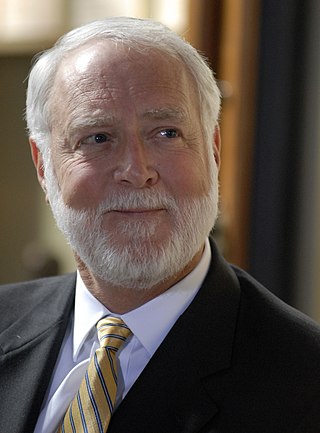
Gerald Wayne Clough is President Emeritus of the Georgia Institute of Technology and former Secretary of the Smithsonian Institution. A graduate of Georgia Tech in civil engineering, he was the first alumnus to serve as President of the Institute.

Candler School of Theology is one of seven graduate schools at Emory University, located in metropolitan Atlanta, Georgia. A university-based school of theology, Candler educates ministers, scholars of religion and other leaders. It is also one of 13 seminaries affiliated with the United Methodist Church.
Thomas Marshall Hahn Jr. was an American educator. He served as President of Virginia Polytechnic Institute and State University from 1962 to 1974 and CEO of Georgia-Pacific Corporation from 1983 to 1993.

Blake Ragsdale Van Leer was an engineer and university professor who served as the fifth president of Georgia Institute of Technology from 1944 until his death in 1956.

The College of Natural Sciences at The University of Texas at Austin offers 10 Bachelor of Arts majors, 42 Bachelor of Science majors, and 20 graduate programs to more than 11,000 undergraduates and 1,400 graduate students. The college employs over 370 faculty. Many of the programs are consistently ranked in the top ten nationally, according to U.S. News & World Report (2019), including: Analytical Chemistry (4th), Applied Math (9th), Artificial Intelligence (8th), Computer Science (10th), Computing Systems (8th), Computing Theory (7th), Cosmology/Relativity/Gravity (10th), Ecology, Evolution and Behavior (6th), Mathematics Analysis (7th), Plasma Physics (3rd), Programming Language (8th), and Topology (8th). It was established in 1883.
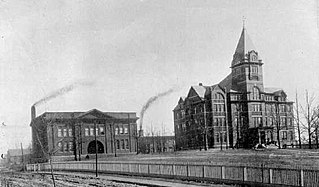
The history of the Georgia Institute of Technology can be traced back to Reconstruction-era plans to develop the industrial base of the Southern United States. Founded on October 13, 1885, in Atlanta as the Georgia School of Technology, the university opened in 1888 after the construction of Tech Tower and a shop building and only offered one degree in mechanical engineering. By 1901, degrees in electrical, civil, textile, and chemical engineering were also offered. In 1948, the name was changed to the Georgia Institute of Technology to reflect its evolution from an engineering school to a full technical institute and research university.

Marion Luther Brittain Sr. was an American academic administrator and longest serving president of the Georgia Institute of Technology from 1922 to 1944. Brittain was born in Georgia and, aside from a brief stint at the University of Chicago for graduate school, spent most of his life serving the educational community there. After receiving a Bachelor of Arts degree from Emory College in 1886, Brittain worked his way up the ranks from principal of an Atlanta high school to superintendent of education for the entire state of Georgia.

George C. Griffin (1897–1990) served in various positions at his alma mater, the Georgia Institute of Technology, most notably as dean of men from 1946 to 1964. He was known variously as "the best friend of all Tech men" and "Mr. Georgia Tech."

William Henry "Big Doc" Emerson was an American chemist.
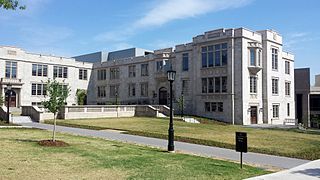
The Honors College at the University of Arkansas enhances the learning of students by sharing unique learning experiences with participants. From 10 to 15% of Arkansas undergraduates participate in the Honors College. Entering freshman for the Honors College have an average score of 30 on the ACT and 4.1 high school GPA. Honors students benefit from smaller classes, priority registration, special housing and opportunities for hands-on research. Each year the Honors College awards up to 90 freshman fellowships worth $72,000 over four years and more than $1 million in research, study abroad, service learning and internship grants. The U.S. News & World Report highlighted the Honors College as one of six institutions in the country that offer a high quality education at a low cost, focusing on the valuable opportunities and connections available to students in the program. The Honors College serves all undergraduate majors.
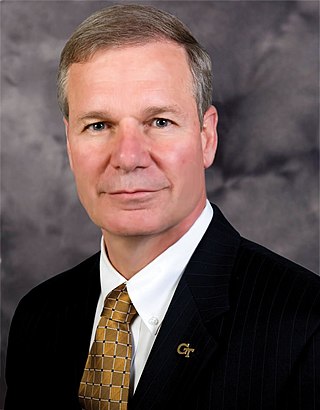
George Paul "Bud" Peterson is the former president of the Georgia Institute of Technology. Peterson is a graduate of Kansas State University, where he earned B.S. degrees in Mechanical Engineering and Mathematics and an M.S. in Engineering, and Texas A&M University, where he earned a Ph.D. in mechanical engineering. On January 7, 2019, Peterson announced his upcoming retirement from Georgia Tech, effective summer of 2019. His successor, Ángel Cabrera, assumed the office September 1, 2019, after serving for seven years as president of George Mason University in Fairfax, Virginia. In September 2019, the University System of Georgia Board of Regents voted to name Peterson President Emeritus and Regents Professor of Mechanical Engineering for the standard three-year term. The Board of Regents also awarded him tenure.
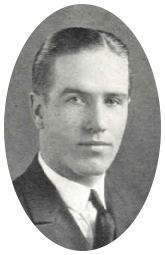
William Harry Vaughan, Jr. was a professor of ceramic engineering at the Georgia School of Technology and the founder and first director of what is now the Georgia Tech Research Institute.
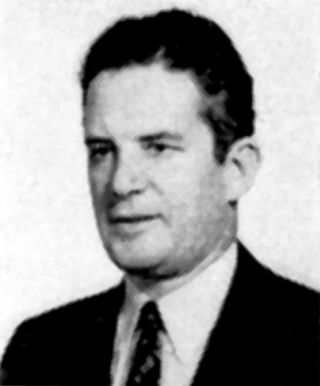
James Emory Boyd was an American physicist, mathematician, and academic administrator. He was director of the Georgia Tech Research Institute from 1957 to 1961, president of West Georgia College from 1961 to 1971, and acting president of the Georgia Institute of Technology from 1971 to 1972.
Paul Weber was the interim president of the Georgia Institute of Technology from previous president Blake Ragsdale Van Leer's death until a replacement was found in Edwin D. Harrison, a period of approximately 18 months.

Peter A. Freeman is the founding dean of Georgia Tech's College of Computing, a position he held from 1990 to 2002. Freeman was assistant director of the National Science Foundation from 2002 to 2007.

The Georgia Institute of Technology is a public research university and institute of technology in Atlanta, Georgia. Established in 1885, it is part of the University System of Georgia and has satellite campuses in Savannah, Georgia; Metz, France; Shenzhen, China; and Singapore.
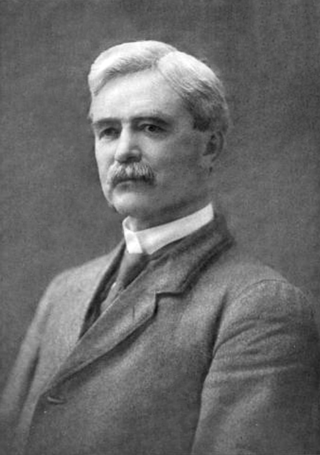
William Harrison Mace was a professor of American history.
The College of Science at Virginia Tech contains academic programs in eight departments: biology, chemistry, economics, geosciences, mathematics, physics, psychology, and statistics, as well as programs in the School of Neuroscience, the Academy of Integrated Science, and founded in 2020, an Academy of Data Science. For the 2018-209 academic year, the College of Science consisted of 419 faculty members, and 4,305 students, and 600 graduate students The college was established in July 2003 after university restructuring split the College of Arts and Sciences, established in 1963, into two distinct colleges. Lay Nam Chang served as founding dean of the College of Science from 2003 until 2016. In 2016, Sally C. Morton was named dean of the College of Science. Morton served in that role until January 2021, when she departed for Arizona State University and Ronald D. Fricker—senior associate dean and professor in the Department of Statistics—was named interim dean of the College. In February 2022, Kevin T. Pitts was named the named the third official dean of the College of Science.
Silas Herbert Hunt was a U.S. veteran of World War II who became the first African American student to enroll in a white Southern university since the Reconstruction era. He enrolled in the University of Arkansas School of Law on Feb. 2, 1948, breaking the color barrier in higher education and starting integration of colleges and universities in the South.













